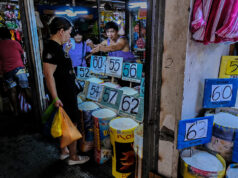38,000 drivers could lose jobs with modernization

ABOUT 38,000 jeepney drivers could lose their jobs next month as the government’ transport modernization program takes effect, the Land Transportation Franchising and Regulatory Board (LTFRB) told congressmen on Wednesday.
The number represents units, which make up 24% of the total, that have not been consolidated under a cooperative or corporation, LTFRB Chairman Teofilo E. Guadiz III told a House of Representatives transportation committee hearing.
“About 38,000 drivers will be affected [by the] one driver, one jeepney [policy],” he said.
Unconsolidated public utility vehicles (PUV) have until Jan. 31 to operate, or a month after the year-end consolidation deadline.
Labor groups have sought a review of the plan, citing loss of control over individual franchises and high membership fees.
Joel J. Bolano, head of the LTFRB technical division, said about 76% or 146,897 PUV units had been consolidated by the end of last year. He added that 6,877 or 72.2% of routes nationwide have been consolidated.
He said 75% or 112,801 jeepneys have been consolidated.
Mr. Bolano said 15,928 or 82% of UV express units, 17,785 or 86% of public buses and 383 or 45% of minibuses have been consolidated.
LTFRB board member Riza Marie T. Paches said cooperatives could buy modern PUVs without increasing fares, which depend on fuel prices.
Party-list Rep. Bonifacio L. Bosita said a cooperative must raise more than P40,000 per unit a month to afford modern jeepneys, which cost P2.8 million each.
The minimum fare for traditional jeepneys is P13 and P15 for modern jeepneys.
Think tank IBON Foundation estimates that PUV fares could increase by as much as P50 in the next five years. — Beatriz Marie D. Cruz



